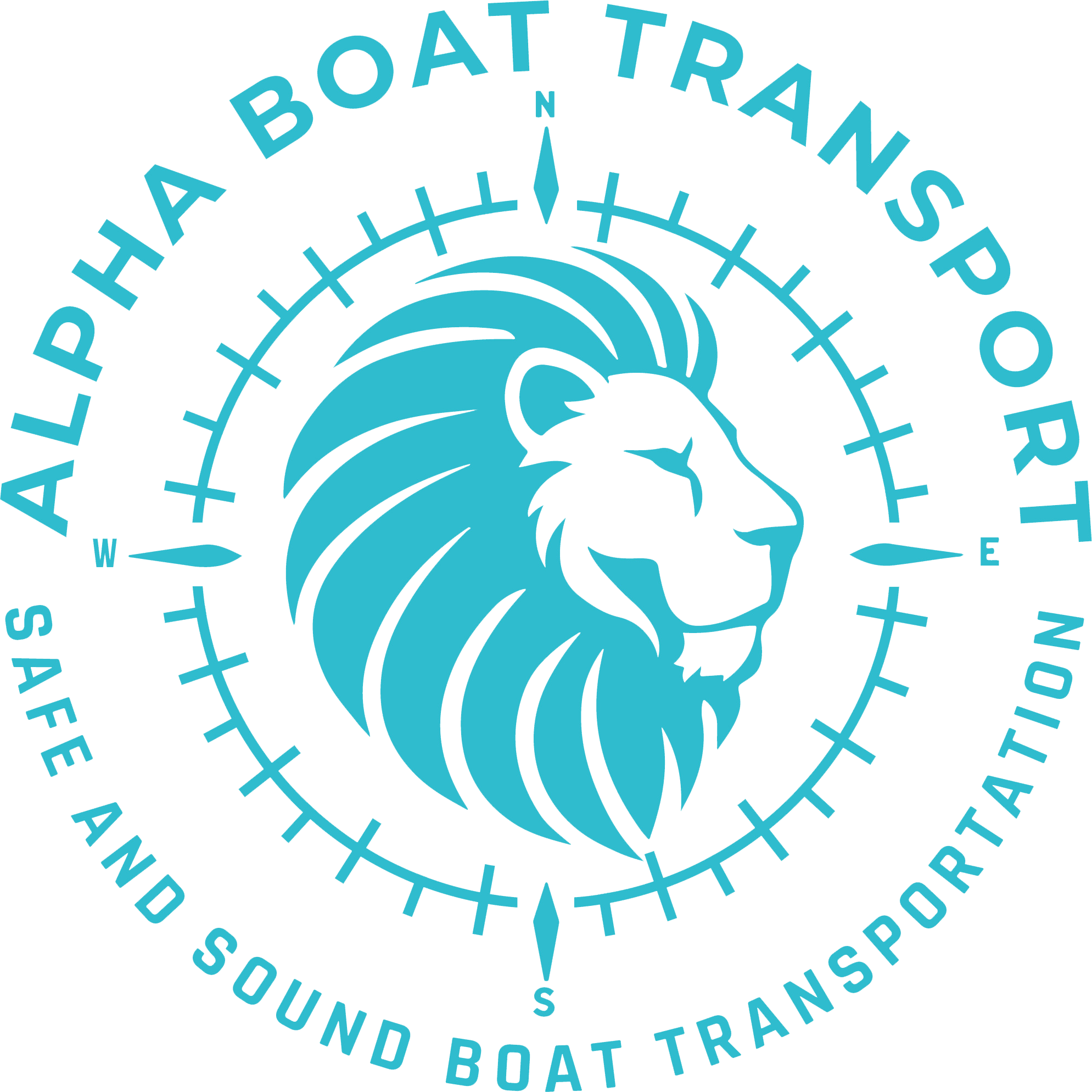Cyber Insurance Shields Boat Hauls: Why Inland Trawler Transport Just Got Smarter
A New Kind of Wave: When Cyber Threats Hit the Highway
So let me ask you something. You ever cinch down a 45-foot trawler for a coast-to-coast haul and wonder if your insurance actually covers the stuff that ain’t moving? I’m not talking about the fenders or fridge magnets. I mean the cyber attacks. Yeah, that’s right — ransomware and data hijacks that can freeze up your shipment before the truck even hits I-5.
Here’s the thing: according to the U.S. Coast Guard’s latest safety guidance at https://www.uscg.mil/Mariners/, inland boat safety goes beyond physical straps and permits. We’re now in an era where transport vulnerabilities start with bad code, not just bad roads. And in 2024, over 11.27 billion tons of freight moved across the U.S. on trucks — a chunk of that being oversized loads like your deep-set cruisers, center consoles, and beam-heavy yachts.
Why should you care? Because a 25% spike in logistics cyber attacks last quarter led to a surge in claims. Picture your captain’s log, route data, or permit clearance system getting locked out by a hacker in Romania…and your trawler getting blocked in Billings.
Understanding Trawlers Boat Transport in 2025
If you’ve moved a beamier trawler lately, you know the drill’s gotten dicey. States like California now require daylight-only moves paired with both front and rear pilot cars if your boat’s over 8.5 feet wide. Oregon? Bridge inspections keep pushing vertical clearances down near 14’6″ — a nightmare if you’re running with the hardtop intact.
But now toss in the cybersecurity chaos. Suddenly, transporting your trawler isn’t just about mast tilts and flag cars — it’s about firewall protection and data encryption while crossing state lines. That’s where smart outfits like Alpha Boat Transport’s long-distance hauling services gain an edge.
This ain’t fluff — it’s fact. Smart captains are now asking carriers if cyber liability’s included in the premium. Before, that was laughable. Now it’s as critical as checking route weights and bridge heights.
Related Routes: Why You Can’t Skip the Planning
Take a Florida reposition in October — sounds sunny, right? Except on Columbus Day weekend, you’re up against heavy RV traffic, seasonal storm delays, low visibility, and now… hack-prone dispatch software. We’ve seen cases where bogus route changes were pushed to a driver’s GPS, landing the hauler in restricted parkland. You can’t make this stuff up.
Transporting trawlers safely means protecting the boat, the route, and—these days—the backend tech. The smarter companies? They’re not just hiring CDL carriers. They’re onboarding infosec consultants.
How Cyber-Endorsed Coverage Protects Marine Moves
So anyway, you’re probably wondering: what exactly does cyber insurance do for my trawler? Good question.
Here’s the rundown:
- Logistics System Coverage: Protects GPS routing, permit platforms, and scheduling tools from interference
- Encrypted Comms: Ensures your marina delivery team gets updates, not corrupted files
- Ransom Response: Some policies now pay for ransomware response teams if data gets locked down mid-haul
Yeah, sounds like overkill — till it’s your trawler parked on the wrong side of a county line with expired pilot windows.
And some boat owners are asking: Isn’t this already covered under marine insurance? Not really. Most marine policies skip cyber events entirely unless you bolt them on — and bolt-on means more bucks.
I was talking with a marina dispatcher in Naples just last week. She said their transporter’s whole inbound calendar was wiped by a malicious script pretending to be a Coast Guard update. No joke. Delayed every offload by three days. She now vets for cyber clauses during booking.
You do the math.
Expert Tips from the Wheelhouse: How to Cyber-Proof Your Trawler Transport
Alright, listen. If you’re planning trawlers boat transport this year — especially overland routes through CA, OR, or along high-traffic corridors — don’t wait for the insurer to pitch you the protection. Ask up front. Make that your first question after “Can you clear 14’7 under load?”
And here’s the kicker — firms like Alpha Boat Transport? They’re already baking in cyber clauses into the service agreements. Quietly, of course. Not a gimmick — just smart business.
Other precautions?
- Check where dispatch data is stored. If it’s cloud-based, make sure it’s encrypted.
- Confirm that driver logs and permit checks are digitally timestamped and protected.
- Ask if the pilot cars are equipped for real-time rerouting in event systems get jammed.
It’s not just about compliance anymore. It’s about continuity. Get hacked mid-leg and your fall storage window down in the Keys might vanish.
Why Small Upgrades Make Big Differences
Keep in mind — you’re not just investing in a truck and trailer. You’re investing in the whole logistics genome. From the first click of a quote form to final splash at the marina, the systems have to talk to each other — securely.
I mean…if you’d told me back in 2010 we’d have to firewall a boat haul, I’d have laughed. But now? My espresso budget’s smaller than my cyber endorsement line item. That’s where we’re at.
Inland Transport Risks: The Regulatory Curveballs
Let me tell you something. The red tape’s only gotten worse. States like New Jersey and Texas? They’ve started cross-auditing permit durations with bridge maintenance logs. I’ve seen instances where frickin’ weekend delays voided the whole permit — had to refile from scratch.
And guess what? If your logistics software’s bugged or hacked? You may not even know your paperwork’s outdated.
Bottom line is, you gotta go with haulers that not only know the state regs but also invest in threat monitoring. Yeah, that’s a thing now.
Companies like Alpha’s Texas division get it — they’re syncing route vetting with cyber tools. Not because it’s trendy. Because it works.
And let me just say — if you’re moving something wider than 8.5 feet, you better triple-check your pilot car assignments and mast height. Add in one bad packet on a compromised device and suddenly the bridge clearance map ain’t showing you the new detour in effect.
Why Route Planning Tech Isn’t Optional Anymore
Back in the day, I used to keep a spiral-bound atlas with highlighted routes. Now? It’s geo-fencing tools, permit platforms, and real-time risk analytics. And every single one of ’em is vulnerable if they’re not secured.
Want to know what separates fly-by-night haulers from pros like Alpha’s Washington crew? Consistency. Technical protections. Experience under load, under threat, and under pressure.
Frequently Asked Questions
Is cyber insurance necessary for trawlers boat transport?
If you’re transporting your vessel across multiple states, especially through vulnerable digital systems, cyber insurance is becoming essential. Think of it as hull insurance for your logistics data — if something gets hacked, you’re still covered.
How do transport companies protect against cyber threats?
Some specialize like Alpha Boat Transport. They’re integrating encrypted routing maps, secure permit trackers, and real-time dispatch monitoring. Also, they partner with cybersecurity consultants.
What should I ask my hauler before booking my trawler’s transport?
Ask if they offer cyber liability protection, how they secure GPS rerouting, and whether they’ve had any recent digital risks during transport legs. If they stumble? Move on.
How do I know if my route is cyber-safe?
No route is 100% immune. However, routes managed under modern logistics software with risk analytics like those at Alpha’s prep guide are far more resilient to disruptions.
Are coastal state routes more vulnerable to transport-related hacks?
Yep, especially areas with high commercial activity — California, Florida, and Oregon are seeing more spoof attacks on transport systems. That’s why trawlers boat transport on these paths needs beefier digital safeguards.
Can older dealers or haulers handle cyber protection?
Most can’t. Traditional operators often lack the infrastructure. Stick with companies modernizing fleet and backend systems. That’s key for hauls involving cyber-vulnerable corridors.

